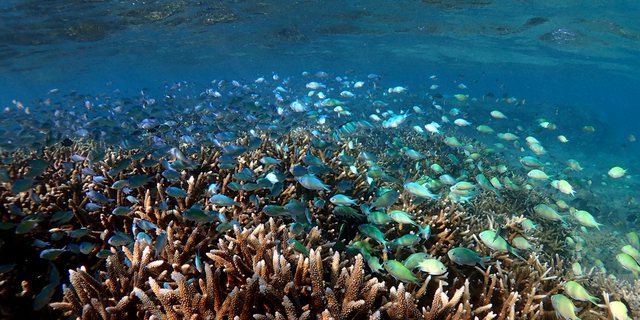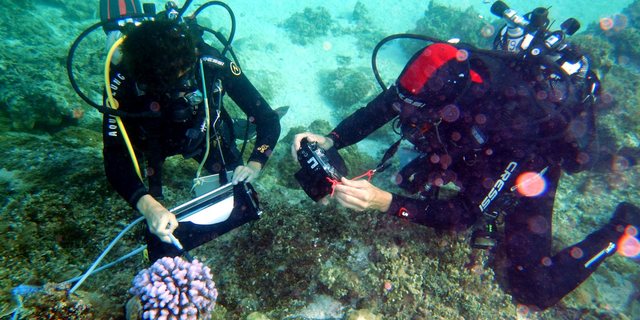Several studies have been conducted by IRD researchers and their partners to forge better understanding of how the coral reefs work so we can protect them.

An international study led by researchers from IRD, Université de Montpellier, New Caledonia University and the University of Hawaii assessed, for the first time, the impact of human activity on fish in the New Caledonian coral reefs. It reveals that the biomass and biodiversity of fish communities are at a maximum in isolated reefs, located at over a journey time of over 20 hours from Nouméa. This new reference, which opens new avenues for the assessment of the state of coral reefs and the effectiveness of protection measures, shows that protected marine areas have a partial impact on fish communities. These results were published in Nature Communications on 29 June 2016.
Coral reefs are closer than we thought: this is what an international study teaches us and this is key information if we want to better protect and manage these irreplaceable sources of marine biodiversity.
A study published in Nature on 15 June 2016 demonstrated that, at various places on the planet, local initiatives have successfully maintained coral ecosystems, where national policies have often failed.
The dynamics of tropical marine biodiversity can be explained by continental drift over the last 140 million years. For the first time, a study has been able to assess the impact of ancient geological events in the current distribution of corals and tropical fish.

The New Caledonian coral reefs had thus far been preserved but they suffered a large-scale bleaching episode in 2016. IRD scientists and coastal communities are now working on this.